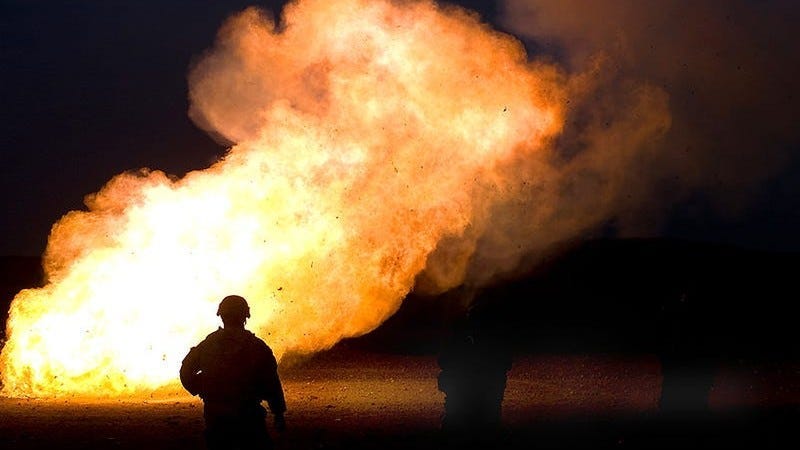
The Department of Veterans Affairs says it intends to propose adding certain rare respiratory cancers to its list of presumed service-connected disabilities in relation to military environmental exposure to toxins.
“This is the right decision," VA Secretary Denis McDonough said in a release. ”The rarity and severity of these illnesses, and the reality that these conditions present a situation where it may not be possible to develop additional evidence prompted us to take this critical action.”

The cancers under consideration include squamous cell carcinoma of the larynx; squamous cell carcinoma of the trachea; adenocarcinoma of the trachea; salivary gland-type tumors of the trachea; adenosquamous carcinoma of the lung; large cell carcinoma of the lung; salivary gland-type tumors of the lung; sarcomatoid carcinoma of the lung; typical and atypical carcinoid of the lung.
There are currently two pieces of toxic exposure legislation before Congress. The House of Representatives is expected to vote on the Honoring our Promise to Address Comprehensive Toxins (PACT) Act this week.
In addition to establishing a presumption of service connection for 23 respiratory illnesses and cancers related to burn pits and airborne hazards exposure, the PACT Act would:
• Provide Priority Group 6 healthcare for as many as 3.5 million toxic exposed veterans
• Streamline VA’s review process for establishing toxic exposure presumptions
• Concede exposure to airborne hazards/burn pits based on locations and dates of service.
• Require medical exams/opinions for certain veterans with toxic exposure disability claims.
• Add hypertension and MGUS to the list of presumptions for Agent Orange exposure.
• Create a presumption of exposure to radiation for veterans who participated in cleanup activities in Palomares, Spain and Enewetak Atoll.
The Congressional Budget Office on Feb. 28 announced that the measure would cost more than $300 billion in new mandatory and discretionary offsets. That price tag has raised alarm among fiscal conservatives.
Meanwhile, the Senat recently passed the Health Care for Burn Pit Veterans Act, which sponsors called the first of a three-step bipartisan approach the Senate Veterans’ Affairs Committee will take to address the effect of toxic exposure on veterans. It is expected to cost about $1 billion.
Among its provisions, the legislation would:
· Expand the period of health care eligibility for combat veterans who served after Sept. 11, 2001 from five years following discharge to ten years;
· Provide a one-year open enrollment period for any Post-9/11 combat veterans who are outside their 10-year window;
· Establish an outreach plan to contact veterans who did not enroll during their initial period of enhanced eligibility;
· Direct VA to incorporate a clinical screening regarding a veteran’s potential exposures and symptoms commonly associated with toxic substances;
· Mandate toxic exposure-related education and training for healthcare and benefits personnel at VA; and
· Strengthen federal research on toxic exposures.
Talks have not yet begun on how a compromise between the two bills could be ironed out.
VA intends to focus its rule on the rare respiratory cancers in veterans who served any amount of time in the Southwest Asia theater of operations and other locations. The agency will invite and consider public comments as part of this process.
Once rulemaking is complete, VA will conduct outreach to impacted veterans and survivors to inform them about potential eligibility.
Reach Julia LeDoux at Julia@connectingvets.com.



